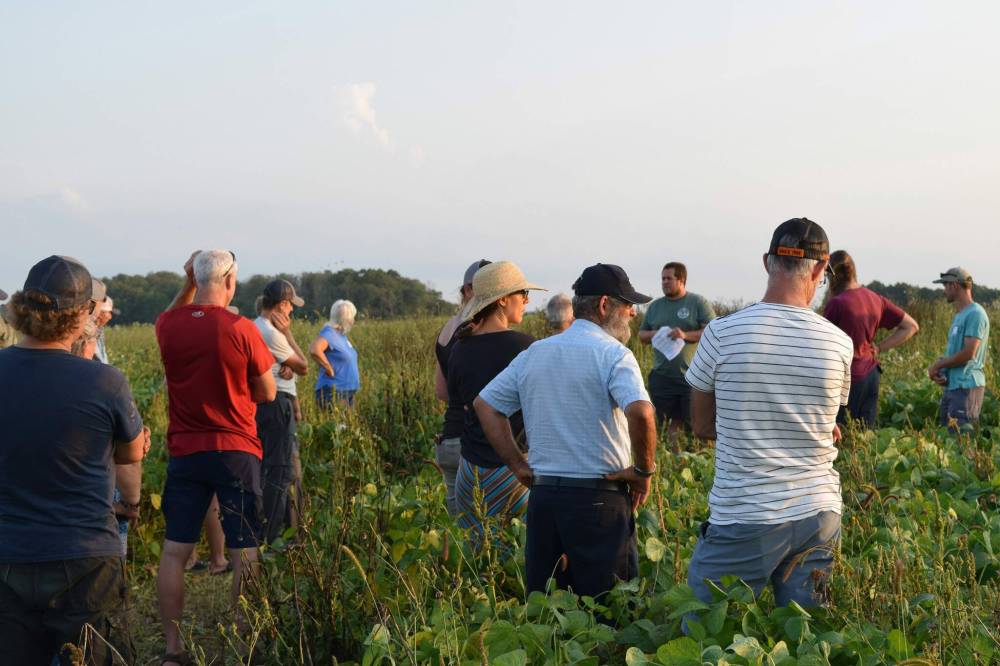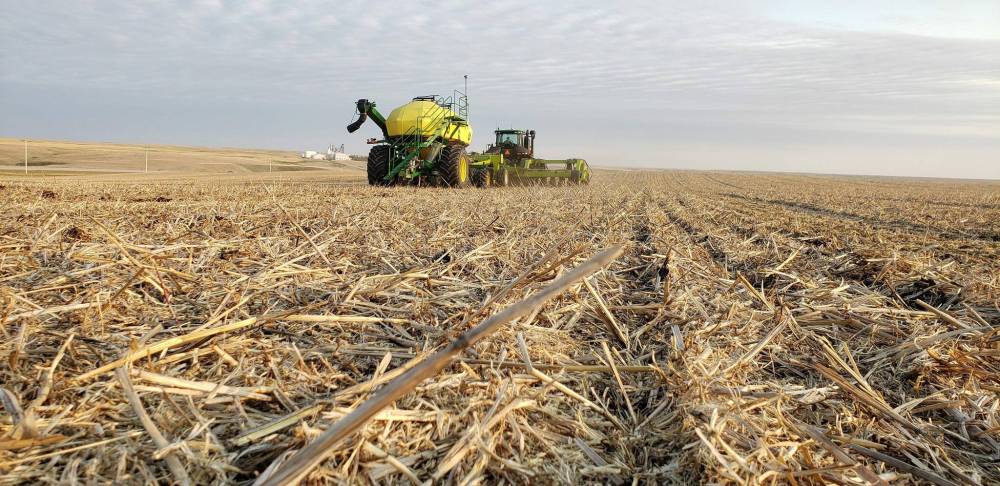Winnipeg firm helps communities become more climate resilient and sustainable
Advertisement
Read this article for free:
or
Already have an account? Log in here »
To continue reading, please subscribe:
Monthly Digital Subscription
$0 for the first 4 weeks*
- Enjoy unlimited reading on winnipegfreepress.com
- Read the E-Edition, our digital replica newspaper
- Access News Break, our award-winning app
- Play interactive puzzles
*No charge for 4 weeks then price increases to the regular rate of $19.95 plus GST every four weeks. Offer available to new and qualified returning subscribers only. Cancel any time.
Monthly Digital Subscription
$4.99/week*
- Enjoy unlimited reading on winnipegfreepress.com
- Read the E-Edition, our digital replica newspaper
- Access News Break, our award-winning app
- Play interactive puzzles
*Billed as $19.95 plus GST every four weeks. Cancel any time.
To continue reading, please subscribe:
Add Free Press access to your Brandon Sun subscription for only an additional
$1 for the first 4 weeks*
*Your next subscription payment will increase by $1.00 and you will be charged $16.99 plus GST for four weeks. After four weeks, your payment will increase to $23.99 plus GST every four weeks.
Read unlimited articles for free today:
or
Already have an account? Log in here »
Hey there, time traveller!
This article was published 11/06/2023 (943 days ago), so information in it may no longer be current.
At first blush, it might seem strange that an insurance company would put up money to sustain wetlands.
However, extreme weather poses a huge risk to the bottom line, and combating climate change through community projects that improve climate resiliency is just common sense.
“One of the top issues facing all of us in Canada is the growing risk of extreme weather,” said Selena Hinds, vice-president of marketing for Wawanesa Mutual Insurance Co. “(Last year) was the third worst year for ensured losses from severe weather in Canadian history at 3.1 billion,” she said.

SUPPLIED
Winnipeg-based firm Wawanesa has made a $2-million annual commitment to fund people and organizations working on the front lines to improve climate resiliency in communities across Canada.
The Winnipeg-based firm is doing something about it. It has launched a community impact program called Wawanesa Climate Champions, which will help communities become more climate resilient and sustainable.
Wawanesa has made a $2-million annual commitment to fund people and organizations working on the front lines to improve climate resiliency in communities across Canada.
“As the growing threat of climate change takes hold, and we see the impacts on communities across Canada, it was absolutely our belief that stepping up in this space to help our members and Canadian communities was critically important at this time in history,” said Hinds.
The list of community partners is long: the Canadian Red Cross, Youth Climate Lab, World Wildlife Fund Canada, Tree Canada, New Acre Project by ALUS, Nature Force by Ducks Unlimited Canada, Nature Conservancy of Canada, Institute for Catastrophic Loss Reduction, FireSmart Canada, Farmers for Climate Solutions, and the Centre for Indigenous Environmental Resources.
Groups include environmental guardians, community protectors, and youth stewards who work as conservationists, farmers, Indigenous peoples, disaster preventers, responders, and rebuilders, and the next generation of youth taking action against climate change.
The projects will focus on sustaining wetlands, peatlands, forests, grasslands, watersheds, floodplains, and farmlands with various mitigation and adaptation strategies.
The amount of the grant varies, depending on the project, to a maximum of $250,000.
Hinds said it’s important for Wawanesa to find partners that have a national reach and local impact, in addition to supporting grassroots climate groups in the province.
One of them is Farmers for Climate Solutions. The coalition advances policies and programs to support farmers to reduce emissions, sequester carbon and make the food supply more resilient.
Andrew Rushmere, farm program director, says Wawanesa’s funding will help expand its national farm resilience mentorship program, particularly in Saskatchewan, which accounts for 43.1 per cent of Canada’s cropland.
“The partnership with Wawanesa is something we are really excited about because of their clear people focus,” said Rushmere. “We also have a focus on spotlighting climate champions in the agriculture sector, sharing some of those positive stories and what farmers can contribute to the fight against climate change.”
The mentorship program offers advice and knowledge from scientists and agrologists to train farmers to adopt climate-friendly or low-emission and high-resilience farm practices.

SUPPLIED
The projects will focus on sustaining wetlands, peatlands, forests, grasslands, watersheds, floodplains, and farmlands with various mitigation and adaptation strategies.
“We know from years and years of research and experience that farmers tend to learn best from one another. They tend to trust one another, including agrologists,” said Rushmere.
Last year, the mentorship program reached 2,700 producers who farmed 1.6 million acres. Rushmere said they are on target to exceed their goal for this year.
The agriculture sector in Canada is responsible for 12 per cent of greenhouse emissions from fossil fuels, fertilizers, pesticides, plastics, and other inputs.
To mitigate the growing impacts of climate change, Farmers for Climate Solutions focuses on three main practices called cover cropping, advanced nitrogen management, and rotational grazing.
The practices are some of the most effective, affordable, and accessible solutions in the development of a sustainable and climate-resilient future.
The group says farmers are changing the way they seed, control weeds, manage soil health, till and plough, and use on-farm energy and fuels. Others are using rotational grazing methods for raising their livestock or experimenting with composting and manure handling techniques.
These practices increase nutrient availability, plant growth, soil moisture retention capacity and reduce greenhouse gas emissions such as carbon dioxide, nitrous oxide, and methane.
Rushmere says a smaller portion of the grant will pay for members of the group to attend Ag in Motion, Western Canada’s Outdoor Farm Expo, which is a three-day trade show in July with an average attendance of 25,000 people.
tessa.adamski@freepress.mb.ca


